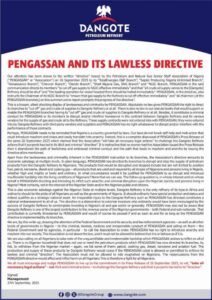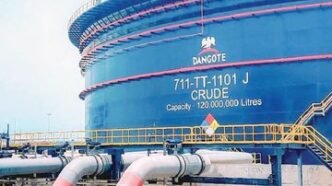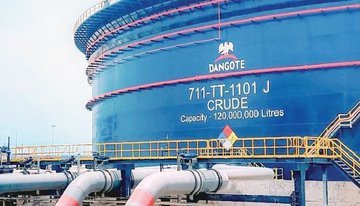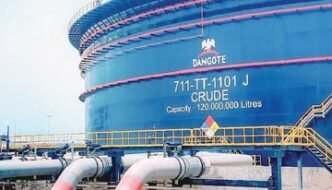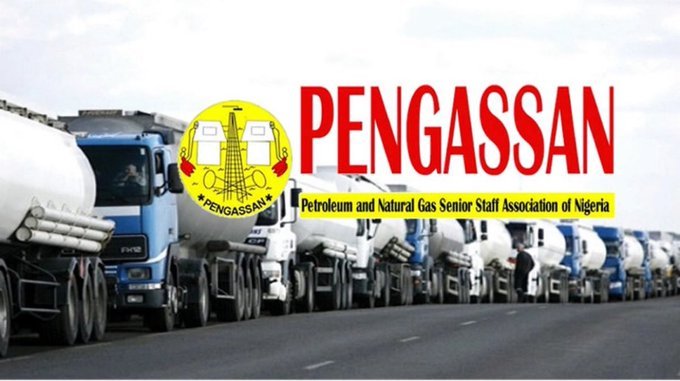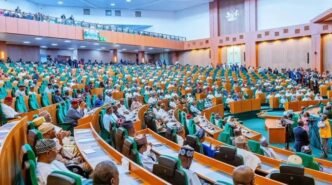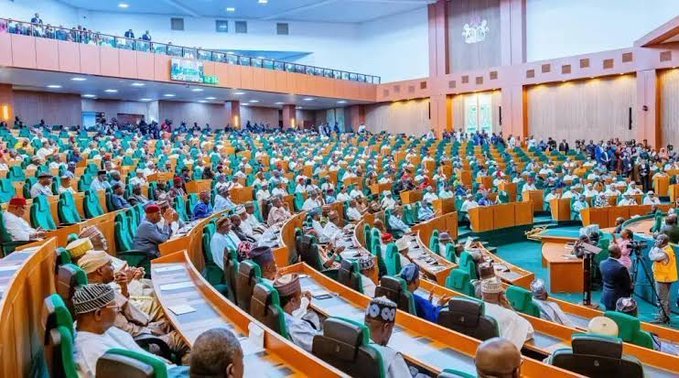The management of the Dangote Petroleum Refinery has strongly condemned the directive issued by the Petroleum and Natural Gas Senior Staff Association of Nigeria (PENGASSAN) instructing its members to cut off gas supply and shut crude oil valves to the refinery. Describing the move as “lawless, reckless, and against national interest,” the refinery has urged the Federal Government to intervene immediately to avert what it called a “calculated attempt to destabilize Nigeria’s energy security.”
The development comes barely 24 hours after PENGASSAN, in a circular signed by its General Secretary, Comrade Lumumba Ighotemu Okugbawa, instructed workers in the oil and gas sector to halt supplies to the $20 billion refinery over alleged victimisation of staff who joined the union. The association accused the management of the refinery of sacking hundreds of workers sympathetic to organised labour, instead of engaging in dialogue over labour-related disputes.
Dangote Refinery Responds: “This Is Pure Blackmail”
In its official reaction released on Saturday evening, the Dangote Petroleum Refinery described the union’s directive as “unlawful blackmail designed to hold the refinery and the Nigerian public hostage.” According to the statement, the refinery insisted that no Nigerian law empowers a union to unilaterally shut down the operations of a private investment that contributes significantly to the nation’s economy.
“We consider the directive of PENGASSAN as lawless and an abuse of privilege,” the refinery stated. “The Dangote Petroleum Refinery is not a government-owned facility but a private enterprise established under Nigeria’s investment laws, with thousands of Nigerians employed directly and indirectly. Any attempt to starve the refinery of crude oil and gas supply amounts to economic sabotage.”
The company further argued that it had not violated any labour law, stressing that employee relations within the refinery are guided by the International Labour Organization (ILO) conventions and Nigerian statutes. Management claimed that allegations of mass sackings were “grossly exaggerated,” insisting that the refinery had only conducted routine restructuring to align with operational efficiency.
Background to the Dispute
The rift between PENGASSAN and Dangote Refinery has been simmering for months. Reports suggest that over 800 workers were disengaged earlier this year, many of them alleged to have been dismissed for joining the union. PENGASSAN accused the refinery of intimidation, denial of workers’ rights to association, and disregard for collective bargaining.
The refinery, however, has consistently denied these allegations. Insiders within the company argue that many of the disengaged staff were either contract workers whose agreements had expired or employees found to have violated company policies. “It is misleading to say we targeted union members. Our focus has always been on building a world-class refinery where professionalism, merit, and accountability take precedence,” the management said.
Tensions escalated this week when PENGASSAN issued a circular directing its members in the upstream and midstream segments of the oil and gas industry to halt all supply lines to the Dangote Refinery. The move, if implemented fully, threatens to disrupt the refinery’s operations and, by extension, Nigeria’s fragile energy supply chain.
Economic Implications of a Shutdown
The Dangote Petroleum Refinery, touted as Africa’s largest and one of the biggest single-train refineries in the world, has been seen as a game-changer for Nigeria’s energy sector. Commissioned in 2023, it was designed to process 650,000 barrels of crude oil per day, with the capacity to meet Nigeria’s domestic demand for petrol, diesel, aviation fuel, and other refined products, while also creating export opportunities.
Analysts warn that a disruption in crude oil and gas supply to the refinery could trigger fuel scarcity, worsen inflation, and undermine efforts by the government to stabilise the naira. With the refinery already supplying a substantial portion of Nigeria’s domestic fuel needs, its shutdown could force the country to revert to increased importation of petroleum products—an outcome many economists argue would be disastrous.
Dr. Emeka Ihedioha, an energy policy analyst, explained: “The refinery has only just begun stabilising Nigeria’s downstream sector. Any action that halts its operations will not just affect Dangote as a company, but the entire Nigerian economy. We could see a resurgence of long fuel queues, higher pump prices, and loss of investor confidence.”
Federal Government Caught in the Middle
The Nigerian government finds itself in a delicate position as it seeks to balance industrial harmony with economic stability. On one hand, organised labour, through PENGASSAN, is demanding fair treatment for workers, accusing the refinery of anti-union practices. On the other hand, the government has invested political and economic capital in ensuring the refinery thrives, seeing it as a strategic asset to end decades of dependency on imported refined products.
A senior government official who spoke anonymously confirmed that urgent consultations were ongoing to prevent the standoff from degenerating into a nationwide crisis. “Government cannot fold its arms and watch the refinery shut down. This is a national security matter. At the same time, we have to ensure that workers’ rights are respected. We are engaging both sides to find common ground.”
PENGASSAN Defends Its Position
Despite Dangote Refinery’s accusations of lawlessness, PENGASSAN has defended its directive, arguing that it has a responsibility to protect its members from unfair labour practices. The union insists that it exhausted all avenues for dialogue before resorting to this drastic measure.
In its circular, PENGASSAN said: “Instead of engaging us constructively, the management of the refinery resorted to intimidation and mass sackings. We cannot allow a situation where Nigerian workers are treated as expendable in a multi-billion-dollar project. Our action is a last resort to ensure justice for our members.”
Union leaders maintain that the right to organise is enshrined in both Nigerian law and international conventions, and any attempt to suppress workers’ rights will be resisted.
Public Reactions
The unfolding drama has elicited mixed reactions from Nigerians. Some citizens have expressed support for PENGASSAN, insisting that no company, no matter how big, should be allowed to trample on workers’ rights. Others, however, argue that the union’s directive is too extreme and risks throwing the entire country into economic chaos.
Social media platforms have been flooded with debates, with hashtags like #DangoteRefinery, #PENGASSAN, and #EnergyCrisis trending. While labour activists laud PENGASSAN for standing up to corporate power, business leaders warn that the standoff could discourage future large-scale investments in Nigeria.
The Road Ahead
The situation underscores the fragile balance between labour rights and national economic interests. As negotiations continue, stakeholders agree that dialogue remains the only sustainable path forward. The Federal Ministry of Labour and Employment is expected to convene an emergency meeting between PENGASSAN and Dangote Refinery in the coming days to de-escalate tensions.
For now, the refinery insists it will not succumb to “blackmail,” while PENGASSAN vows it will not back down until workers’ rights are restored. Nigerians are left anxiously watching, hoping that reason prevails before the standoff cripples the nation’s energy supply.
Conclusion
The clash between Dangote Refinery and PENGASSAN has exposed deep-rooted challenges in Nigeria’s labour relations and energy sector. It is a test of how far unions can go in protecting their members’ rights and how much leverage private enterprises have in resisting labour’s influence. With billions of dollars at stake, millions of Nigerians dependent on stable fuel supply, and the government under pressure to maintain economic stability, the outcome of this confrontation will have far-reaching implications for the country’s future.
What is clear is that both sides have dug in their heels. The coming days will determine whether dialogue can resolve the impasse or whether Nigeria is heading toward another cycle of fuel scarcity and economic uncertainty. For now, the Dangote Refinery has fired back, calling PENGASSAN’s directive “lawless,” but the battle for control of Nigeria’s energy destiny is far from over.
